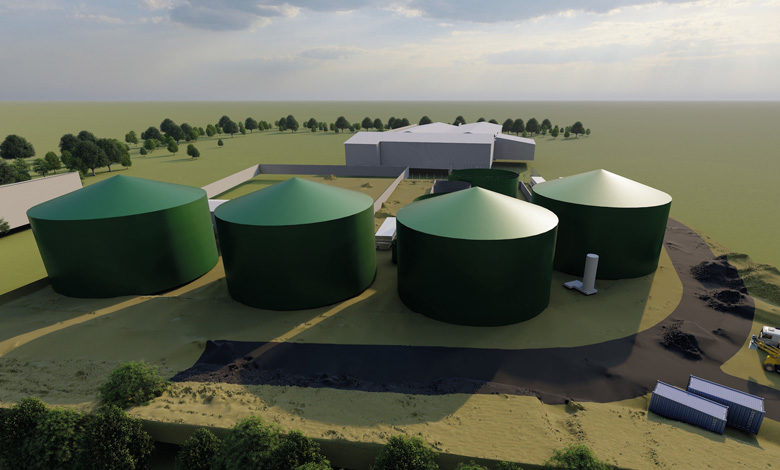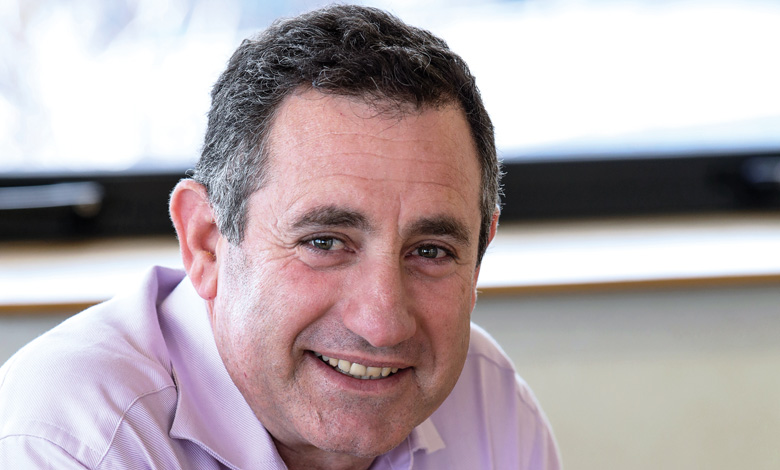Harnessing the energy value of waste

RiverRidge’s commitment to innovation and dedication to decarbonising the Northern Ireland waste sector is reaching new heights, outlines CEO and Director of Full Circle Generation, Brett Ross.
Albert Einstein once wrote that “energy cannot be created or destroyed, it can only be changed from one form to another”. Waste, therefore, is simply a collection of materials each containing varying levels of trapped energy waiting to be released in one form or another.
When waste is landfilled it decomposes and releases methane gas, a greenhouse gas that is up to 80 times more potent than carbon dioxide. While being a dangerous gas to our atmosphere when released in an uncontrolled fashion, it presents a powerful solution when captured and used efficiently.
Methane is a primary component of natural gas, so, wherever we use natural gas we can (within limits) use methane to replace it. When extracted from a waste source the gas is known as biomethane and it is becoming a highly sought-after source of energy.
In Northern Ireland alone, the aspiration is to generate 1,400,000 MWth of biomethane each year. When topped up very slightly with propane, the gas can be injected into the Northern Ireland gas network to substantially decarbonise it. Using hydrogen to achieve this level of decarbonisation is far costlier and complex and this is one of the primary reasons why all other UK regions and the Republic of Ireland have already started developing the infrastructure.
Europe as a whole is aiming to increase its biomethane production to over 320,000,000 MWth. Key to generating biomethane is a feedstock that has a large element of methane in it and this is where RiverRidge comes in.
RiverRidge’s R&D focus over the past five years has been to design a technology that can maximise the extraction of methane gas from its waste streams. The company has been receiving household waste from several of Northern Ireland’s councils since 2011. Historically, its desire to divert this waste stream from landfill has focused on the combustion of the waste in order to create electricity. While this is still a fundamental part of the company’s strategy, it is recognised that the combustion of waste, particularly plastic waste, carries with it an unacceptably high carbon footprint.
If Northern Ireland is to realise carbon neutrality in the waste sector, a long-term alternative to the combustion of waste will be imperative.
RiverRidge deals with waste streams that are co-mingled, this means that every load received contains everything from paper to plastic to food to metals. Treating a waste stream like this is complex and the presence of contaminants like food waste and other liquids makes it near impossible to divert commonly recyclable materials like paper, cardboard, and plastic into traditional recycling markets. RiverRidge has had to come up with innovative treatment methods to ensure as much material can be recycled early on in the process. This percentage is, however, low.
The company has therefore focused on finding a technology that will increase the level of recycling from residual waste as well as harness the energy value of waste thus allowing it to change the energy from one form to another.
BioCircul8
In 2019, the company developed the first stage of its BioCircul8 technology, which involves the refining of the waste stream to a point where it is consistent enough to be used in the second stage of the process. Working with a number of sector specialists and engineering consultants, the company has perfected the first stage of this operation and now is ready to develop the second stage.Its BioCircul8 technology seeks to convert elements of the waste stream into a usable soil improver while extracting the precious methane gas it contains.

“If Northern Ireland is to realise carbon neutrality in the waste sector, a long-term alternative to the combustion of waste will be imperative.”
The £50 million project aims to make a significant impact on Northern Ireland’s biomethane target. Biomethane output is estimated to be in the region of 150,000 MWth, making it one of the region’s largest facilities. It will also dramatically reduce the carbon footprint associated with treating household waste but also ensure that the waste is used entirely within Northern Ireland and not exported abroad. Keeping this value local is a core aspiration from RiverRidge.
The company has shown that local solutions in the waste sector are achievable. In 2018 it commissioned its gasification facility in Belfast and immediately ensured that over 100,000 tonnes of waste need no longer be exported to European energy from waste facilities.
RiverRidge may be a small, local company in the context of several of its UK and European competitors, but the company’s commitment to innovation and dedication to its community have ensured that its vision – to treat waste as a valuable resource and in so doing ensure a positive outcome for our plant and communities – is fast becoming a reality.
T: +44(0)28 95 313 313
E: info@riverridge.co.uk
W: www.riverridge.co.uk







